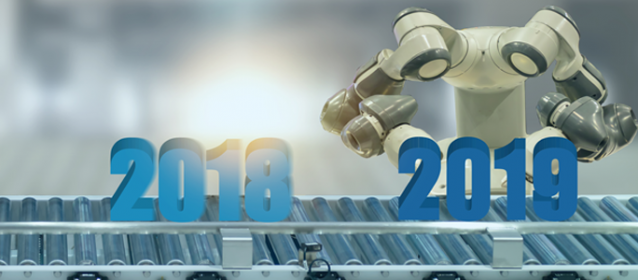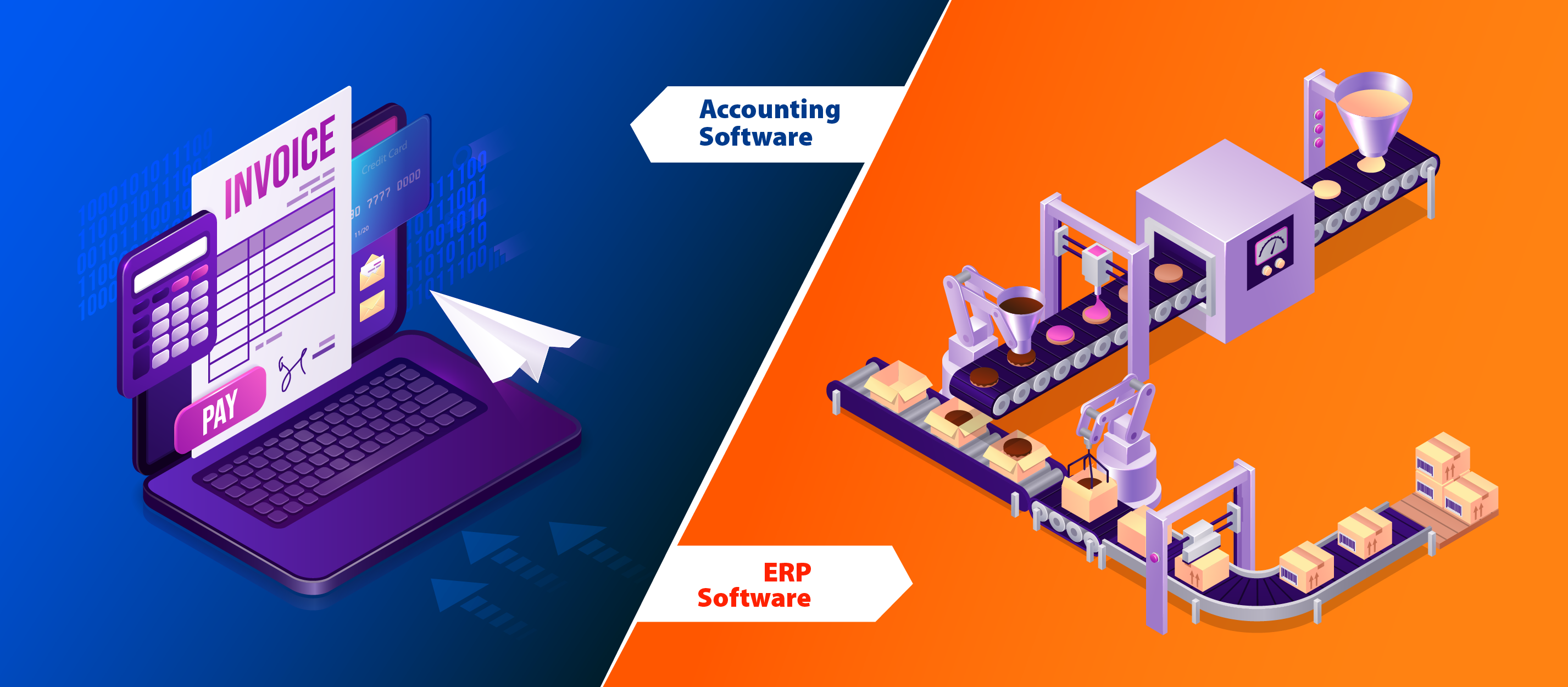
The year 2018 is behind us now. It was a year where the manufacturing industry maintained an upward ride, with more number of companies investing in digital transformation initiatives.
The initiatives in question were not only restricted to the technology, but were marked by a complete organizational shift, and involved a combination of people, technology and the business processes.
Enterprise Resource Planning (ERP) systems were also an integral part of this digital transformation.
Equipped with new features, functionality, and technologies, the ERP systems continued to evolve and force the companies to revisit their ERP strategies, thus allowing them to add more value to their software investment.
With 2019 dawning upon us, we look forward to the year and predict some of the most important digital transformation trends in the process manufacturing industries.
These trends will help manufacturing businesses get an idea of where the business world is moving, why it is moving there, and how can they keep pace with these changes.
Some of the trends mentioned in this blog made waves last year too, and are likely to consolidate their position in 2019.
Whereas, there are some new digital transformation trends as well, that are likely to dominate the process manufacturing landscape this year.
So without any further delay, here’s a look at the top 10 digital transformation trends for process manufacturing industries in 2019:
AI & machine learning will continue to grow:
Even as they say, that data is the new oil, it is virtually of no use if the manufacturers don’t have the capability to analyze it and get accurate insights out of it.
That’s precisely where Artificial Intelligence (AI) and machine learning come into play with their ability to manage humongous volumes of data, and generate valuable insights.
2018 saw manufacturers turning to AI-enabled ERP systems, a step that helped them increase responsiveness, improve efficiency and identify new business opportunities.
2019 is not going to be any different, with more and more process manufacturers incorporating AI and machine learning into their operations.
Talking about AI, in 2019 it will be about more intelligent Voice Assistants with the increase in their overall knowledge and common sense reasoning.
Moreover, moving to front and center will be pre-trained machine learning models and third party data sets.
IIoT on the rise:
An industry report suggests that the IoT is expected to grow exponentially in the year 2019, with the number of connected devices climbing up to the mark of 1 trillion by 2020.
Its integration with ERP systems was a major success story in 2018, as it provided the business leaders with real-time actionable data and information.
However, talking about the process manufacturing businesses in particular, it is Industrial IoT (IIoT) that’s going to be the buzzword in 2019.
An amalgamation of different technologies like machine learning, big data, sensor data, and automation, IIoT will be extensively used by the manufacturers in 2019.
The interconnected machines at the shop floor are going to allow the manufacturers not just gather vital data, but to access it from anywhere, anytime, and analyze it so as to make accurate and informed decisions in quick time.
Apart from that, it will make real-time monitoring possible, which will in turn facilitate remote diagnosis, predictive and proactive maintenance, and asset optimization.
Some other IIoT benefits to process manufacturers include improved visibility and operational efficiency, increased productivity, and reduced complexity of processes.
Blockchain decoded:
Though the Blockchain technology has been around for a while, it has remained somewhat of an enigma for common people, who still fail to understand and use it – forget about reaping its benefits.
Blockchain in fact has a lot of potential and plenty to offer beyond cryptocurrencies.
Businesses realized it in 2018, when the use of this technology was excessively done by process manufacturers in their supply chains to keep a record of digital data or events, which could not be tampered with.
This way, the manufacturers could perform a whole lot of operations – from payments, and audits, to tracking inventory and assets, and enjoy greater supply chain efficiency plus visibility.
Understand it this way- Blockchain enables digital documentation of every single instance when a particular product changes hands, right from manufacture to sale.
This way, the manufacturers can know where a particular product is in the supply chain at a given time. The consumers too can benefit from it by getting to check the authenticity of the product they have, and track it in real-time.
Some other benefits of Blockchain in manufacturing supply chain include reduced time delays, costs, and human errors, decreased cases of fraudulence, and improved transparency and security.
With Blockchain making waves in manufacturing supply chain in 2018, expect the same in the year 2019 as well.
5G rollout a reality:
The year 2019 will finally witness 5G rollout, with leading companies already doing a wide number of test deployments in order to offer faster and more innovative mobile network services.
The arrival of 5G will mean a significant improvement in download speeds, the ability to access and consume large data, run heavy applications, and remotely control a vast array of devices.
This is going to particularly benefit the process manufacturers who are planning to go all-out in investing in IoT, as they’ll be able to get real-time control and insight and eventually make faster, and more impactful decisions.
More businesses are being operated from mobile devices from remote locations these days. 5G rollout is going to be a boon for all such businesses, with the manufacturers getting faster access from anywhere, anytime.
GDPR to the fore:
A recent study by Forbes shows that 90 percent of the world’s data got created in 2018, and naturally, there have to be adequate measures in place to protect this massive data.
Not surprisingly, there will be an increased focus on data security in the year 2019.
At the moment, only two-thirds of the total organizations comply with the European General Data Protection Regulation (GDPR), whose sole purpose is to provide better user data protection.
But with the general awareness regarding the risks of data misuse, consumers will demand more accountability from the companies, and the governments are likely to come up with more stringent regulations, in the year 2019.
AR over VR:
While the majority of process manufacturers have experienced some form of virtual reality (VR) or augmented reality (AR), it is the latter which has been more useful for them.
VR, being used predominantly in the gaming and niche applications, hasn’t found many takers in the manufacturing sector.
AR, on the other hand, has found application in enterprise workforce training, and is tipped to be one of the most interesting and flourishing digital transformation trends for process manufacturing industries in 2019, with many big tech giants investing money in this technology.
Integrated Cloud:
2019 is going to be about interconnected Cloud, which refers to the strategy where a company uses two or more cloud computing platforms – usually a combination of public, private, and hybrid Cloud models – to perform various tasks.
It is a known fact that the Cloud technology has been critical in helping organizations collect and process data.
And with the advent of multicloud, organizations are likely to improve security and data accessibility. Experts are even claiming that multicloud will emerge as one of the biggest buzzwords in 2019.
Improved chatbots:
The experience of conversing with chatbots has improved over the years, but there’s still ample room for improvement.
And come 2019, this experience is likely to improve significantly, thanks to the machine learning algorithms.
The benefits of using chatbots to the companies are immense, as it is extremely cost-effective to have hundreds of simultaneous customer center conversations in place than having hundreds of hired employees doing the same job.
With major enhancements, the chatbots will automate more and more services in the coming year, thus simplifying businesses.
Digital transformation- A top-down strategy:
The digital transformation has to be a top-down initiative, and just like any major cultural shift within a company, it is likely to fail if it doesn’t get the support and adoption from the top executives.
The Chief Executive Officers (CEOs) and the top leadership play a crucial role in digital transformation.
More and more companies are realizing that merely relegating digital transformation to the IT, HR, or marketing departments is not going to bear desired results, and it is in fact the top leadership that has to adopt it so as to make the employees understand why digital is important and how they can ensure its success.
So, in 2019, expect CEOs to take charge and drive the digital transformation initiatives within the organization.
Building future-ready workforce:
It is important to understand that the technology alone doesn’t bring the digital transformation, but an amalgamation of the technology, people, business culture and processes that make it possible.
The people implementing it are as important to digital transformation as the technology itself.
Keeping the same in mind, more manufacturers are likely to invest in imparting digital training to their employees, and making their workforce digitally skilled in the year 2019, thus ensuring they are building a workforce for the future.
This can be done both internally, and by partnering with institutions that provide digital training.
In sum:
These digital transformation trends — some new, some existing — are going to change the way businesses work across industries, in 2019 and beyond.
Even though it may be a bit premature to determine the impact of some of these technologies on businesses, few may doubt their potential to considerably change the way a lot of business operate.
Talking about the process manufacturers, they are definitely going to benefit by incorporating some of these technologies with their ERP systems.
If you are into a process manufacturing business and looking for digital transformation using an process manufacturing ERP system in line with the trends in your industry, we at BatchMaster can help. Write to us at sales@batchmaster.com for more information.



















